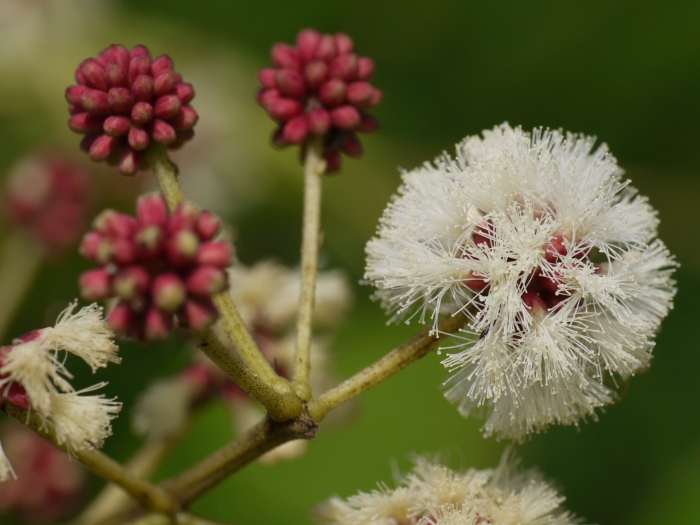Climbing Wattle
(Senegalia pennata)
Climbing Wattle (Senegalia pennata)
/
/

© Dinesh Valke
CC BY-SA 4.0
Image By:
© Dinesh Valke
Recorded By:
Copyright:
CC BY-SA 4.0
Copyright Notice:
Photo by: © Dinesh Valke | License Type: CC BY-SA 4.0 | License URL: http://creativecommons.org/licenses/by-sa/4.0/ | Uploader: dineshvalke | Publisher: iNaturalist |
























Estimated Native Range
Summary
Senegalia pennata, commonly known as Climbing Wattle, is a deciduous shrub or small tree native to the open woodlands and forest edges of South and Southeast Asia. It can grow up to 16 feet (5 meters) tall and is characterized by its climbing habit, bipinnate leaves, and yellowish flowers that appear in terminal panicles. The flowers bloom during the warm season and are moderately showy, attracting pollinators. The plant’s young, feathery shoots are a notable feature, being both edible and highly sought after for culinary use.
Climbing Wattle is valued for its edible shoots, which are a delicacy in various Asian cuisines. In Northern Thai cuisine, the shoots are consumed raw in salads or cooked in curries and omelettes. This plant is also used in tropical and subtropical gardens for its ornamental foliage and ability to provide a green screen when trained on a support structure. It requires full sun to part shade, moderate water, and well-drained soil to thrive. While it is not commonly known for significant disease issues, it can become invasive outside its native range, so gardeners should be cautious about planting it in suitable climates.CC BY-SA 4.0
Climbing Wattle is valued for its edible shoots, which are a delicacy in various Asian cuisines. In Northern Thai cuisine, the shoots are consumed raw in salads or cooked in curries and omelettes. This plant is also used in tropical and subtropical gardens for its ornamental foliage and ability to provide a green screen when trained on a support structure. It requires full sun to part shade, moderate water, and well-drained soil to thrive. While it is not commonly known for significant disease issues, it can become invasive outside its native range, so gardeners should be cautious about planting it in suitable climates.CC BY-SA 4.0
Plant Description
- Plant Type: Shrub, Tree, Vine
- Height: 16-20 feet
- Width: 6-10 feet
- Growth Rate: Moderate
- Flower Color: Yellow
- Flowering Season: Spring
- Leaf Retention: Deciduous
Growth Requirements
- Sun: Full Sun, Part Shade
- Water: Medium
- Drainage: Medium, Fast
Common Uses
Bee Garden, Bird Garden, Butterfly Garden, Edible*Disclaimer: Easyscape's listed plant edibility is for informational use. Always verify the safety and proper identification of any plant before consumption.
Natural Habitat
Native to open woodlands and forest edges in South and Southeast Asia
Other Names
Common Names: Cha-om, Acacia pennata
Scientific Names: , Senegalia pennata, Acacia amblycarpa, Acacia canescens, Acacia canescens, Acacia canescens var. albida, Acacia canescens var. canescens, Acacia canescens var. fulva, Acacia concinna, Acacia grahamii
GBIF Accepted Name: